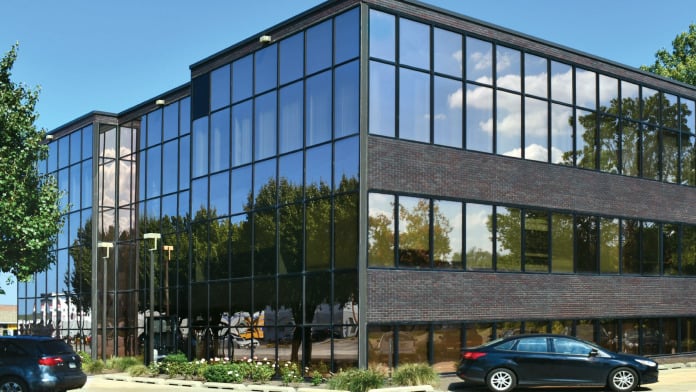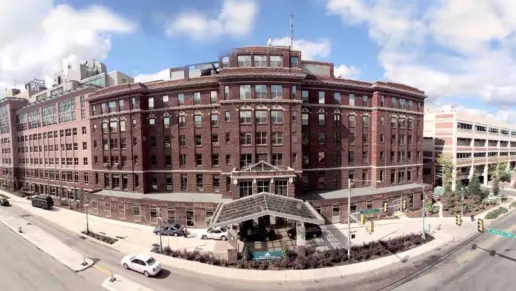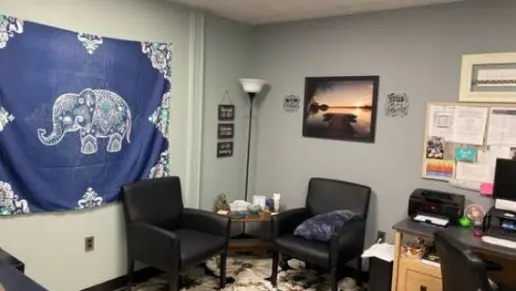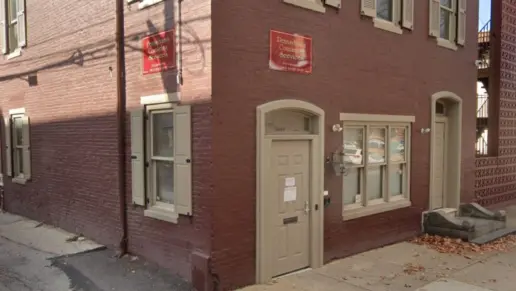About Pyramid Healthcare Erie Outpatient Treatment Center
Specialty rehab programs at Pyramid Healthcare Erie Outpatient Treatment Center include age-appropriate treatment for teens addressing adolescent-specific issues, specialized drug rehab for veterans, addressing combat-related trauma and reintegration, and inclusive treatment respecting diverse sexual orientations and gender identities.
Patients at Pyramid Healthcare Erie Outpatient Treatment Center will find the residential setting creates an immersive environment promoting full engagement in recovery away from daily triggers.
Pyramid Healthcare Erie Outpatient Treatment Center has received accreditations from The Joint Commission.
Latest Reviews
Gallery

Location
Accepted Insurance





Other Forms of Payment
Private insurance refers to any kind of healthcare coverage that isn't from the state or federal government. This includes individual and family plans offered by an employer or purchased from the Insurance Marketplace. Every plan will have different requirements and out of pocket costs so be sure to get the full details before you start treatment.
Self-pay involves paying for treatment out of your own pocket. You can use savings or credit, get a personal loan, or receive help from family and friends to fund your treatment. If you don't have insurance or your insurance plan doesn't cover a specific program, self-pay can help ensure you still get the care you need.
Medicaid is a state based program that helps lower-income individuals and families pay for healthcare. Medicaid covers addiction treatment so those enrolled can use their coverage to pay for rehab. When a program accepts Medicaid the client often pays very little or nothing out of their own pocket.
Addiction Treatments
Levels of Care
Treatments
The goal of treatment for alcoholism is abstinence. Those with poor social support, poor motivation, or psychiatric disorders tend to relapse within a few years of treatment. For these people, success is measured by longer periods of abstinence, reduced use of alcohol, better health, and improved social functioning. Recovery and Maintenance are usually based on 12 step programs and AA meetings.
Drug rehab in Pennsylvania is devoted to the treatment of addiction. Levels of care, treatment methods, and settings differ, but the aim of each program is to end drug dependency and empower participants to achieve long-term recovery.
Pyramid Healthcare provides dual diagnosis treatment, which addresses symptoms of both mental health disorders and addiction, for adults at select facilities. By combining the most effective aspects of mental health care and substance abuse into a continuum, the chances of a client successfully maintaining sustained sobriety increase greatly. Many Pyramid Healthcare clinicians and counselors are certified in the treatment of co-occurring mental health disorders and are able to effectively and expertly apply the tenets of dual diagnosis treatment. Clients receiving dual diagnosis treatment will receive psychiatric care and proper medication to address their diagnosis while simultaneously participating in addiction recovery programs.
Opioid rehabs specialize in supporting those recovering from opioid addiction. They treat those suffering from addiction to illegal opioids like heroin, as well as prescription drugs like oxycodone. These centers typically combine both physical as well as mental and emotional support to help stop addiction. Physical support often includes medical detox and subsequent medical support (including medication), and mental support includes in-depth therapy to address the underlying causes of addiction.
Substance rehabs focus on helping individuals recover from substance abuse, including alcohol and drug addiction (both illegal and prescription drugs). They often include the opportunity to engage in both individual as well as group therapy.
Programs




Clinical Services
Cognitive behavioral therapy (CBT) in Pennsylvania can be helpful to individuals who are experiencing substance use disorder and various mental health conditions. It helps you identify damaging thought and behavior patterns and replace them with healthy ones.
Group therapy is any therapeutic work that happens in a group (not one-on-one). There are a number of different group therapy modalities, including support groups, experiential therapy, psycho-education, and more. Group therapy involves treatment as well as processing interaction between group members.
In individual therapy, a patient meets one-on-one with a trained psychologist or counselor. Therapy is a pivotal part of effective substance abuse treatment, as it often covers root causes of addiction, including challenges faced by the patient in their social, family, and work/school life.
Motivational Interviewing (MI) is a clinical approach to helping people with substance abuse issues and other conditions shift behavior in positive ways. It is more goal-oriented than traditional psychotherapy, as MI counselors directly attempt to get clients to consider making behavioral change (rather than wait for them to come to conclusions themselves). Its primary purpose is to resolve ambivalence and help clients become able to make healthy choices freely.
Couples therapy in Pennsylvania is typically short term treatment that focuses on building skills that lead to positive long term relationship changes. Sessions with the therapist may occur both jointly and individually.
Family involvement can be critical to a client’s success during and after treatment. Pyramid Healthcare has developed a family program designed to educate the client’s family members about the disease of addiction. This program helps both the individual in specialty treatment and their family learn skills and develop behaviors effective in minimizing the negative impact of the addiction on the familial relationship. Their family program can also open lines of communication between the client and their family members. Pyramid Healthcare counselors can provide family counseling if it is requested by the client.
Amenities
-
Residential Setting
-
Private Setting
Accreditations

The Joint Commission, formerly known as JCAHO, is a nonprofit organization that accredits rehab organizations and programs. Founded in 1951, the Joint Commision's mission is to improve the quality of patient care and demonstrating the quality of patient care.
Joint Commission Accreditation: Yes
Contact Information
2409 State Street
Suite C
Erie PA, 16503











